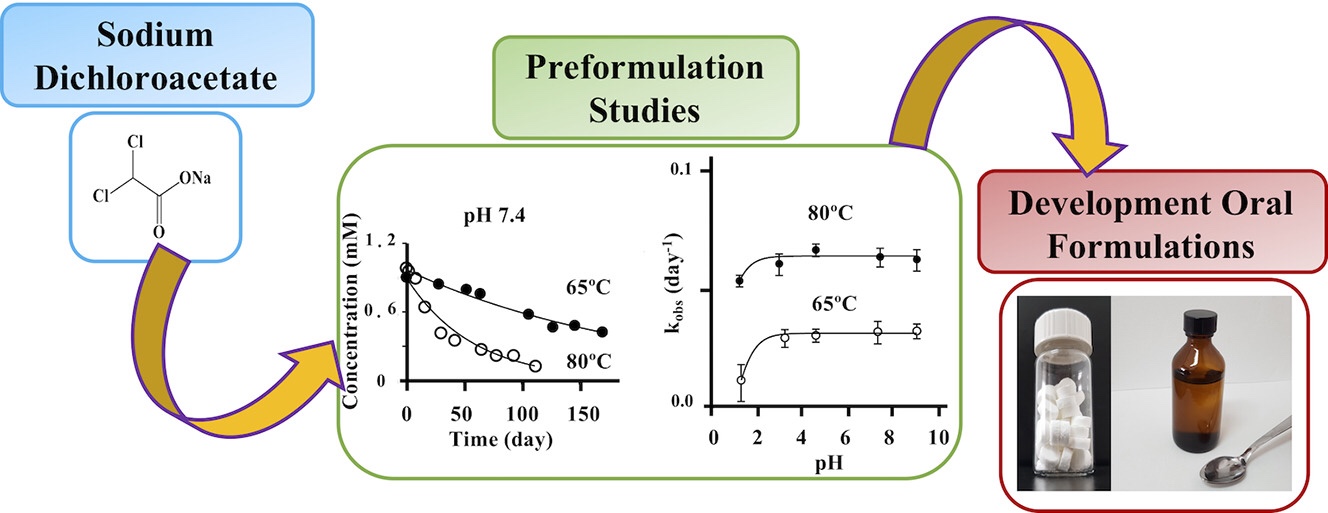Pharmaceutical preformulation studies and paediatric oral formulations of sodium dichloroacetate

The purpose of this study was to develop liquid and solid paediatric formulations of sodium dichloroacetate (DCA) for the treatment of congenital lactic acidosis (CLA). In this work preformulation studies on the active molecule were performed to identify those physico-chemical properties of the drug relevant to the design of the dosage forms and their process of manufacture. TGA and DSC analysis suggested that sodium DCA was very hygroscopic. HPLC and NMR analysis showed that the compound was widely stable in aqueous solutions at 25 and 40 °C at all the pH values studied. Based on these results, sodium DCA was formulated as palatable solutions containing sweetener, viscosity enhancer and flavoring excipients tolerated by paediatric patients affected by CLA. The developed liquid formulations resulted chemically stable at 25 and 4 °C over three months. In use-stability tests showed no chemical degradation and microbiological contamination over one month. Oral tablets of sodium DCA were prepared by molding technique as an alternative and more practical formulation, easier to administer for caregivers than the liquid one. Technological assays (reported in the European Pharmacopeia) showed that oral tablets disaggregated quickly within 3 min at 25 °C in water, thus they were classified as orally disintegrating tablets. Preformulation studies provided a set of parameters against which detailed formulation design could be carried out. Formulation studies showed that the developed dosage forms achieved adequate stability, producibility and patient acceptability.

